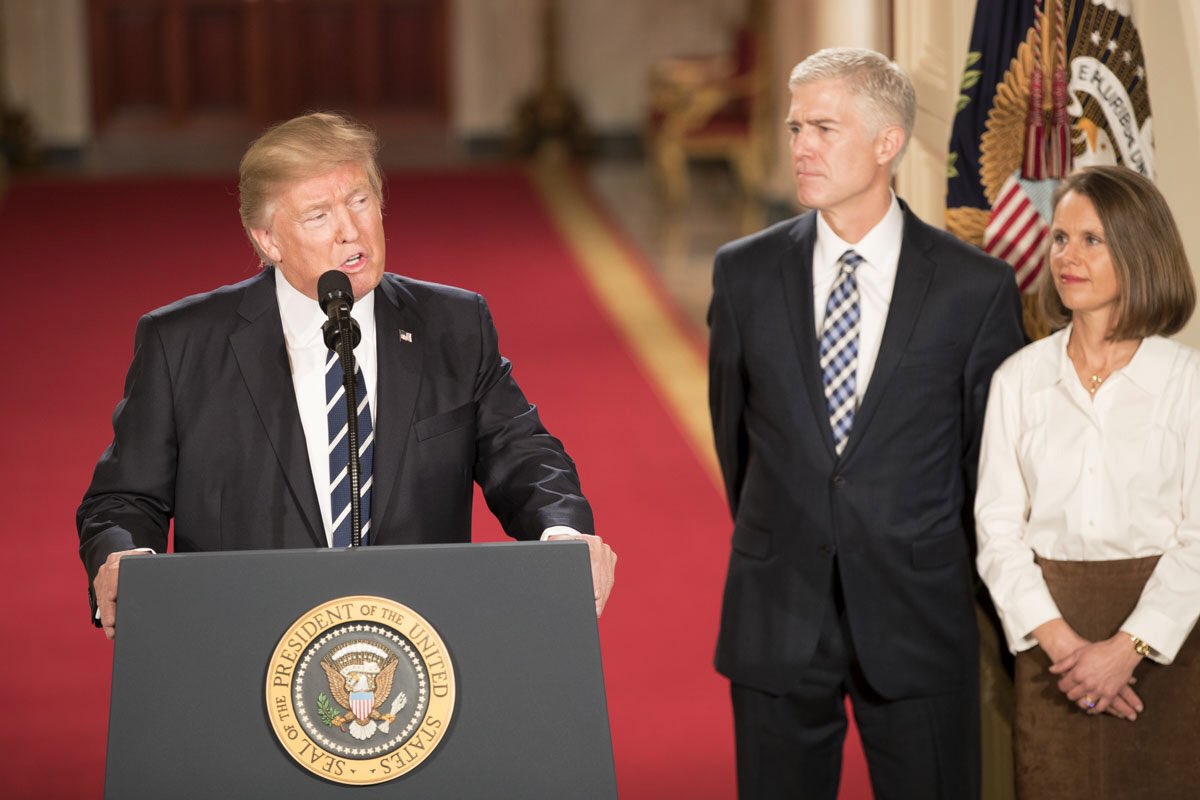Views expressed in opinion columns are the author’s own.
Since the passing of Supreme Court Justice Antonin Scalia nearly one year ago, the biggest battle of national politics has been the process of naming his replacement. With President Trump’s nomination of Neil Gorsuch, a federal appellate judge on the United States Court of Appeals for the 10th Circuit, the Supreme Court will have a ninth justice again, pending Senate confirmation.
Having not supported Trump in the primary or general election, and after the administration’s first three weeks that could be called rough at best, I was skeptical about Gorsuch. Like most people, I don’t have much of a knowledge base about Court of Appeals judges, and Trump’s own clear ignorance of the separation of powers and respect for the judiciary (see: “so-called judge“) made me worried that his Supreme Court pick would serve as an unthinking rubber stamp for the administration.
While Gorsuch’s hundreds of opinions in his 11-year tenure with the 10th Circuit Court of Appeals have been analyzed and discussed by people with greater understanding than me, I took the time to look at one of Gorsuch’s most recent notable ruling, a pair of opinions issued in Gutierrez-Brizuela v. Lynch. For anyone wondering what kind of Supreme Court Justice Gorsuch would be, the writings are especially telling.
Like Scalia, Gorsuch takes what is often called a “textualist” or “originalist” view of the law, and the role of courts in government. For Gorsuch, the role of the judge is to understand the reasoning and language of the law according to the original meaning, and not to apply the values of the judge to the written text. Unlike Scalia, who was famous for biting and bold writings on the court, Gorsuch’s opinions come across as polite and engaging, drawing on a great deal of knowledge and presenting his reasoning in a way that even a non-lawyer like me can understand.
In Gutierrez-Brizuela v. Lynch, Gorsuch’s application of originalist interpretation of statutes related to immigration law addressed the practice of federal agencies (the executive branch of government) both creating regulations and interpreting their meaning (the legislative and judicial powers of government). The permissibility of such a practice comes from the “Chevron Doctrine,” which requires the judicial branch of government to defer to these federal agencies on important questions of law. In Gutierrez-Brizuela v. Lynch, Gorsuch argued deferring the interpretation of a law’s meaning to the agencies that enforce the law was unconstitutional, and that it was time for the judiciary to reconsider the Chevron Doctrine.
Why is Gorsuch’s opinion in Gutierrez-Brizuela v. Lynch so important? Understanding the proper role of the executive and judicial branches of government will be critically important over the coming months and years, as major policy changes on immigration enforcement and other areas will be coming. Gorsuch’s decision to rule in favor of Mr. Gutierrez-Brizuela, an immigrant attempting to navigate a complex immigration system stacked against him by an agency able to both interpret and enforce the law, should be heartening to people on both sides of the aisle.
Sam Wallace is a public policy graduate student. He can be reached at samhwallace@gmail.com.



